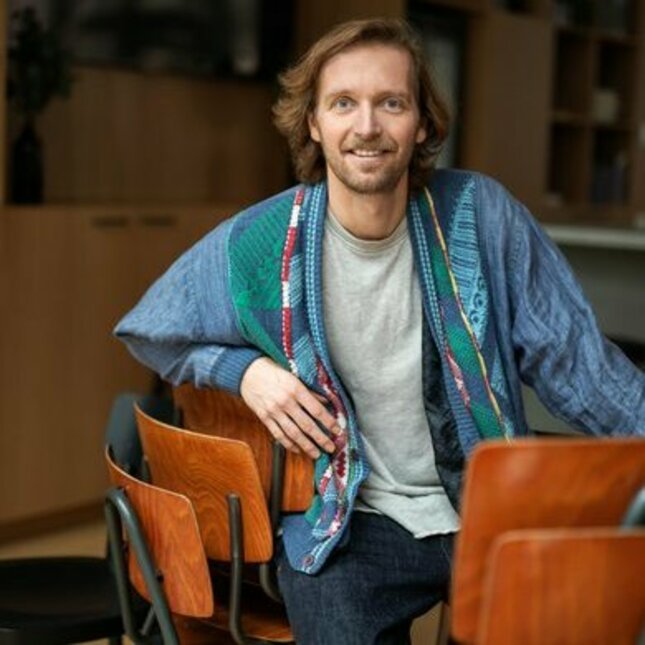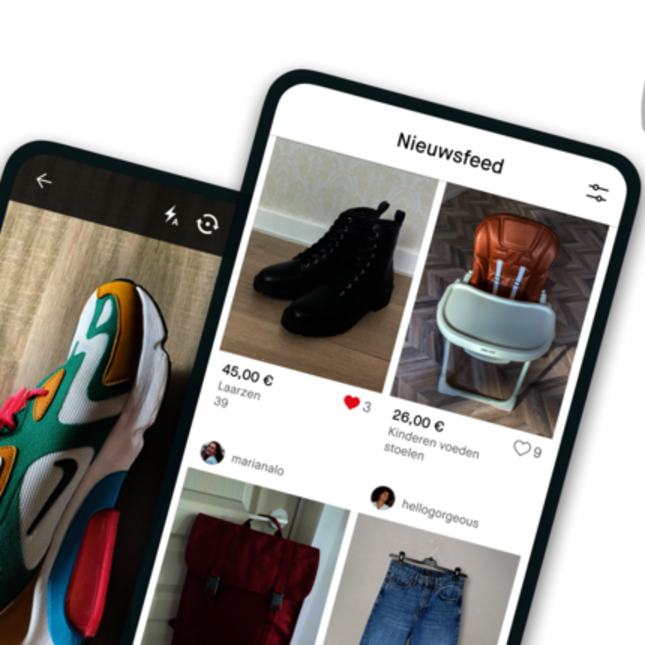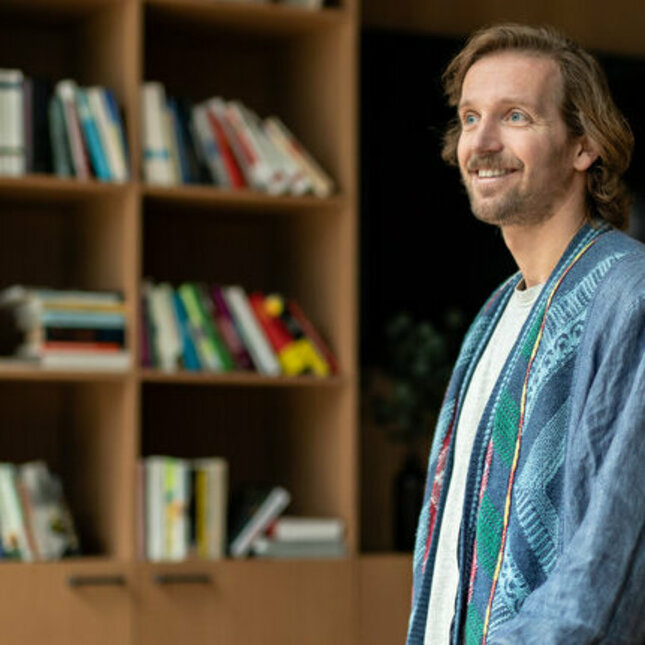A different approach to sustainability
![[Translate to English:] [Translate to English:]](https://assets.w3.tue.nl/w/fileadmin/_processed_/3/8/csm_csm_KROP5432_1_f45e0b25c6_5098b5d341.jpg)
From June 3rd to 7th, specialists in the many fields of sustainability shared their learnings and insights during Green Week. For this post, we would like to turn the spotlight onto the first speaker. Firstly, because he is a TU/e Alumnus. And secondly, because he chose a different path to help create more sustainable world than you would expect. Instead of trying to reduce the environmental impact of clothing production, he found a way to prolong these products’ lives.
His name is Thomas Plantenga and he is the CEO of clothing trade platform Vinted.
Solving puzzles
Thomas really enjoyed the time he spent in Eindhoven, studying Biomedical Sciences. For a long time, he thought this was the field in which he would establish his career. But when he graduated, he decided to take some time to think about his next steps. So, he took a year off to do some kite surfing.
During that year he thought hard about his future: “I was looking for a way to not work from a basement lab, conducting experiments. What I liked most in my study was solving puzzles. That’s what I wanted to do.”
It started with programming
A friend gave him the insight he needed. He said: “You spend quite some time programming machines in the lab. But what if you could also master more general programming? As a programmer you have to freedom of control over your own time, and you can achieve more. Like solving puzzles on a grander scale.”
So, Thomas started programming and quickly found out that he really loved it. Without any previous experience, but with the help of some experts from Silicon Valley, he created his first marketplace.
Lithuania
After selling that platform and starting a second one, he got a call from the second biggest secondhand clothing platform in Lithuania, called ‘Vinted’. They wanted his help in making it better and more popular. At first, Thomas declined. But a smart investor managed to get him to listen to the Lithuanians.
Thomas: “And then I realized how incredibly smart these people are and how much I could learn from them. Long story short: now I live in Lithuania, in a house with my beautiful girlfriend and two dogs. And I work with really lovely people here.”

Levelling up by working hard
If there’s one thing Thomas learned when studying at TU/e it is that “If you want to understand certain things and learn new skills, especially analytical skills, you must work hard for it.” I learned a lot from friends when we studied together. They helped sharpen my analytical skills and to expand them from numbers to any situation. That taught me that, by working hard, you really can bring yourself to a next level.”

Improving and testing
From his professors Thomas learned that the rules that define our world were made up in the past, based on the knowledge these people had back then. But as time progresses, these methods can be upgraded using newly acquired knowledge. Thomas: “That’s why it’s important to surround yourself with smart people and build on each other’s knowledge and ideas. And keep challenging ideas, keep thinking critically.”
“The difference between science and business is that in business, people will think and operate much more irrationally. So, my rule is ‘It is not true until it has been tested and proven true.’ People may believe something to be true, but in 95% of the cases it’s not, because it hasn’t been tested.”

The definition of value
Thomas firmly believes that efforts that benefit society are the most useful. Thomas: “I see smart people create complex algorithms to make money. But money has no value when it benefits only a happy few. On the other end of this spectrum, there’s a friend of mine who built a machine that can do all kinds of testing on a DNA and protein level. That can help accelerate cancer research, for example, which is obviously incredibly useful. And I hope he becomes very rich. He deserves it.”
The majority is not always right
One of the more often heard types of critique is that the high number of shipments by Vinted users is not very sustainable.
Thomas laughs as he hears this: “This is a prime example of so-called common knowledge that is just plain wrong. And journalist just go with this story, without checking it. If they would have done that, they would have found a scientific study that’s already 3 years old. It shows data about the entire shipment process on the one hand and on the other we had the numbers on the positive effects of prolonging product’s lifecycles.
It was independent, peer reviewed and everything. And it showed unequivocally that what we do reduces environmental impact. Creating new clothes does a lot of damage to our planet. And we know that 35% of Vinted sales replace older clothing, so this reduces production. And most shipping is done locally, most of the shipping is done through lockers, and people pick up these types of deliveries mostly by bike or foot.”
Scale helps
Thomas: “I know we’re not saving the world with Vinted. There are probably a lot of other things you could do that make a bigger difference. But with our scale, we can make a real impact.”
He believes that, if you have a skillset that could benefit society, you should use it to do so. That will help us move forward as humankind, not just individual humans.
Thomas: “As a university it is very important to instill in students the realization that you have the knowledge and competencies that can help change the world. It will also probably make these students much happier than chasing after money only. Do what you love to do, what feels right, and success will follow”
This article is derived from an interview with Thomas during Green Week. While the interview touched on many other subjects, like financial viability, taxing polluting industries and the fashion industry, for this story we selected the parts that addressed talent development and the power the next generation of engineers hold to make a real difference for society.